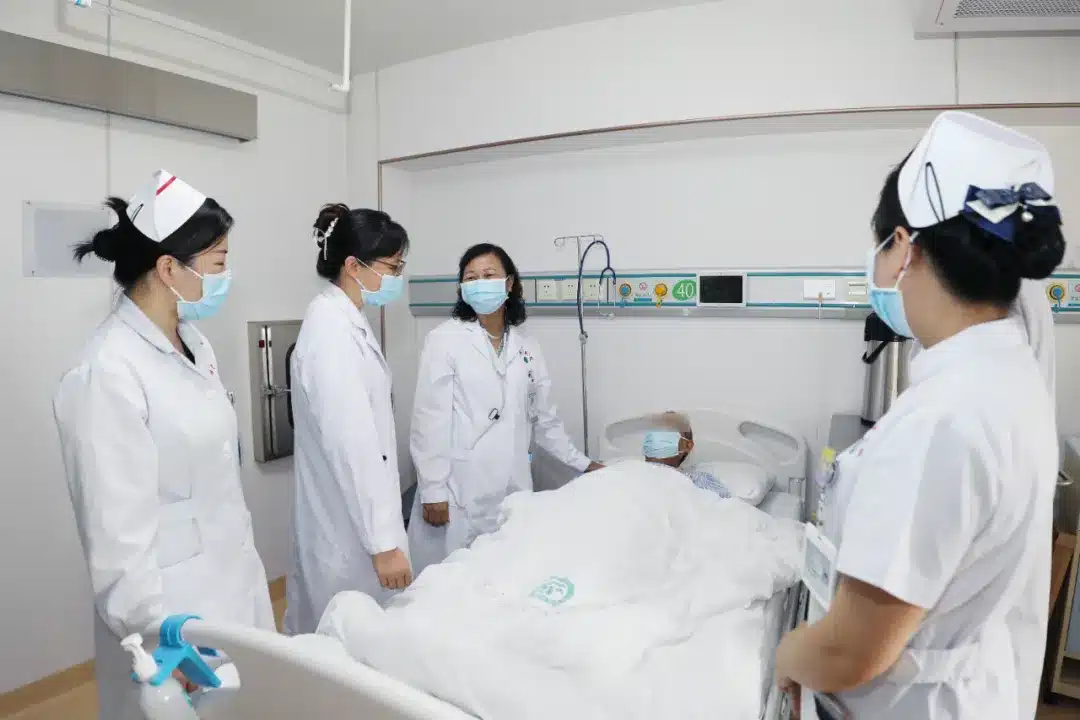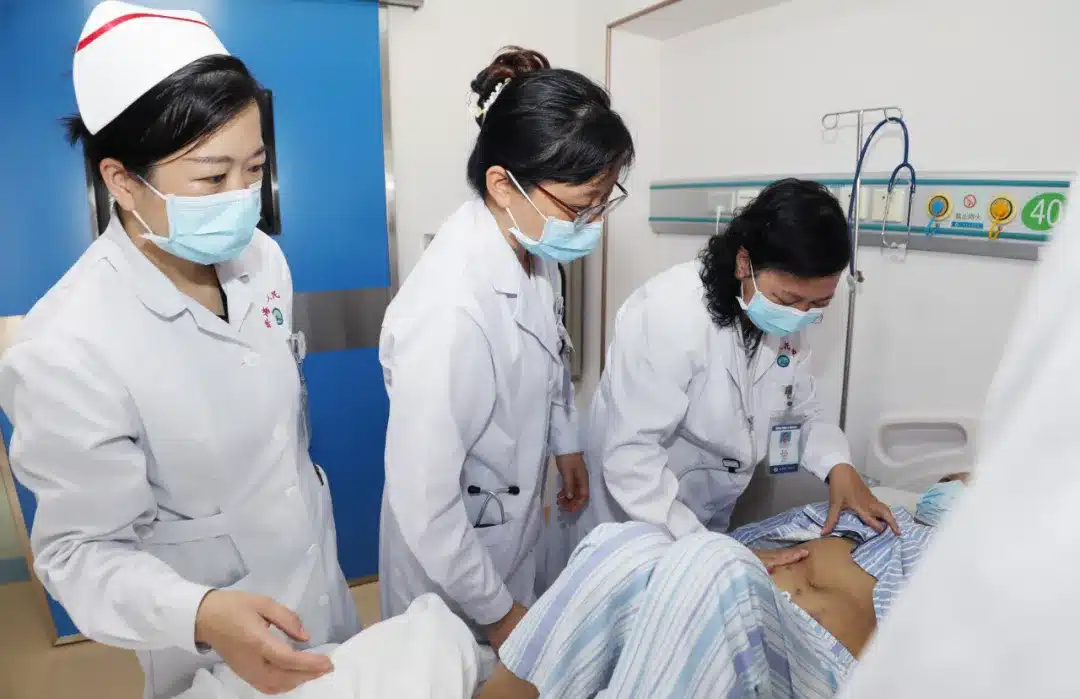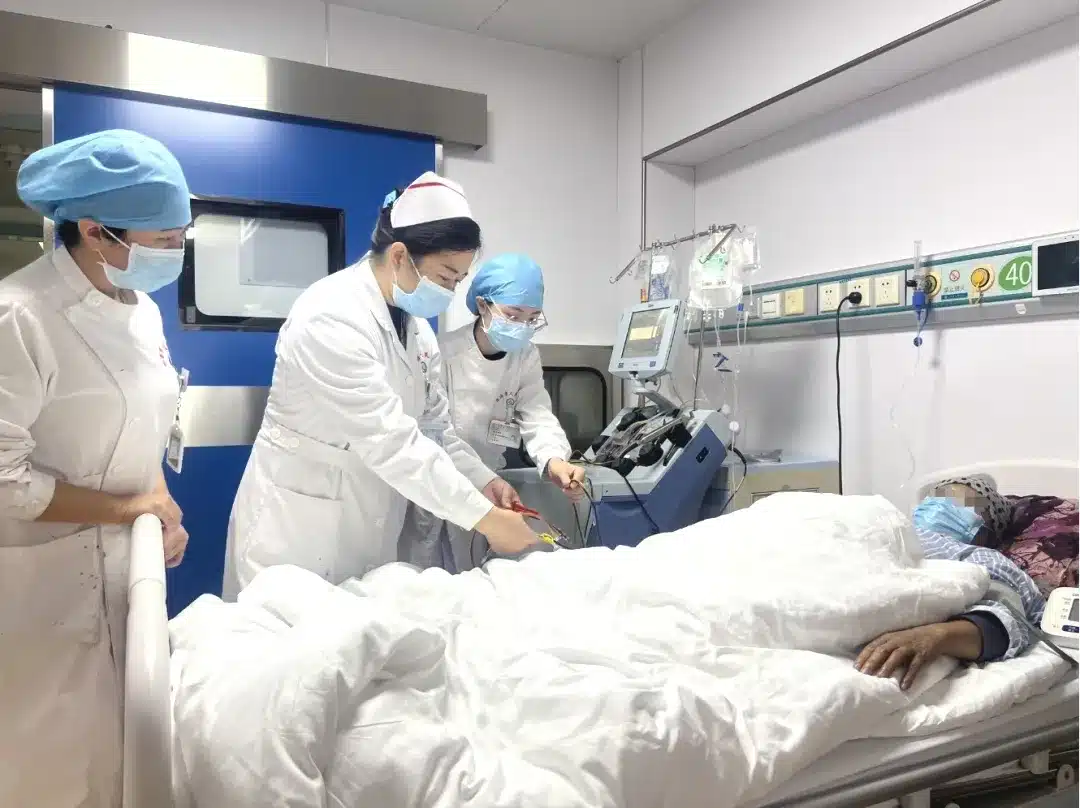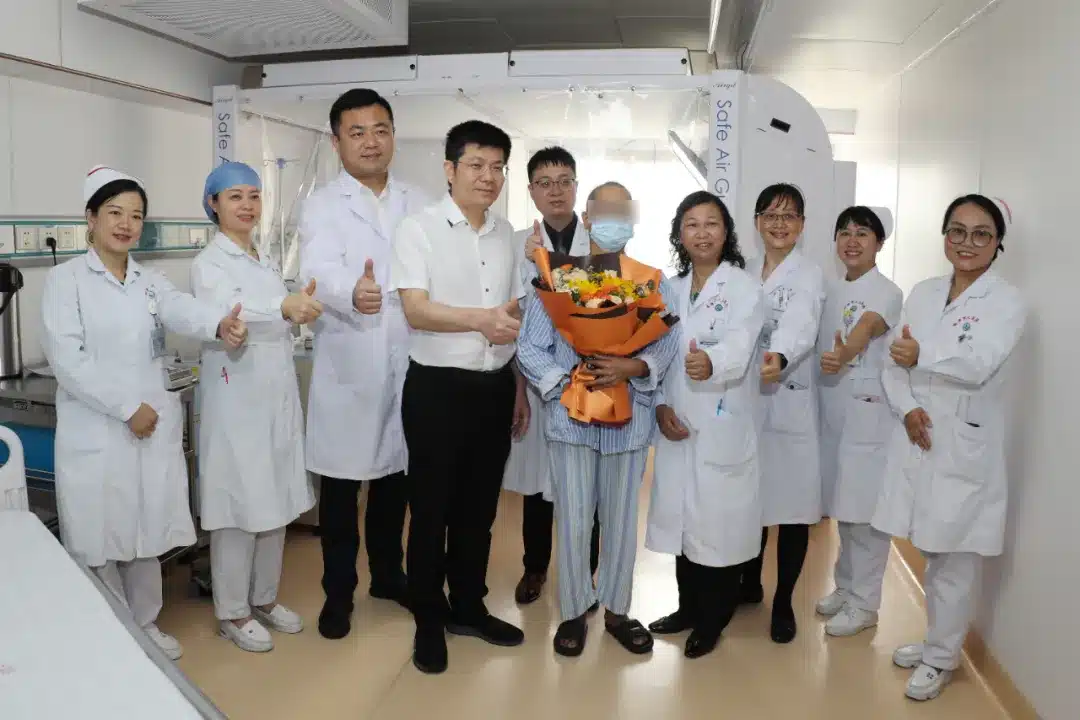A Successful Case of CAR-T Cell Lymphoma Treatment in China
A Successful Case of CAR-T Cell Lymphoma Treatment in China
Promising News from Cellular Therapy. On March 29, 2024, Ms. Mo (alias), a patient with diffuse large B-cell lymphoma who received CAR-T cell therapy, was discharged from the Department of Hematology and Rheumatology at the People’s Hospital of Zhuhai. She is the first patient to receive CAR-T cell therapy in the Zhuhai region.
Liu Muzhou, the deputy director of the People’s Hospital of Zhuhai, expressed the hope that with the hospital’s continued exploration of CAR-T cell therapy for lymphoma, more patients from the Greater Bay Area will benefit from this treatment.

01. The Daunting High-Risk Lymphoma
In August 2023, Ms. Mo was admitted to the Department of Interventional Medicine at the People’s Hospital of Zhuhai due to swelling in her right lower limb for three days. After examination, she was diagnosed with B-cell lymphoma and transferred to the Department of Hematology and Rheumatology. Further PET-CT evaluation and pathological examination confirmed the diagnosis of stage IV high-risk diffuse large B-cell lymphoma (DLBCL). Despite multiple cycles of chemotherapy, she did not achieve complete remission, indicating a refractory lymphoma.
Lymphoma is a malignant tumor originating from the lymphatic hematopoietic system, encompassing nearly a hundred different subtypes collectively known as the “lymphoma family.” In China, approximately 93,000 people are diagnosed with lymphoma each year, and more than 50,000 die from the disease annually. For patients like Ms. Mo with a poor prognosis, relapse and drug resistance are significant challenges.
02. Cellular Therapy: A Beacon of Hope for Cure
With the advent of CAR-T cell therapy, patients with relapsed or refractory lymphoma have a new hope. CAR-T treatment involves genetically modifying T cells to equip them with the ability to recognize and kill cancer cells within the body.

How do doctors perform CAR-T therapy?
Step 1: Extract T cells from the patient’s body and genetically modify them to express a chimeric antigen receptor (CAR) targeting a specific antigen on cancer cells.
Step 2: Culture and activate the CAR-T cells ex vivo, purify, and expand them into a large “army.”
Step 3: Infuse the cultured CAR-T cell “army” back into the patient’s body.
Once the CAR-T cells encounter cancer cells, they will “notify” other immune cells to initiate the killing process.
According to literature reports, data from the ZUMA-1 study showed that the 5-year overall survival (OS) rate for patients treated with CAR-T (Axicabtagene Ciloleucel) was 42.6%. Among patients who achieved complete remission (CR), the 5-year OS rate was 64.4%. Of the patients who survived for 5 years, 92% did not require additional anti-cancer treatment, suggesting the possibility of clinical cure. It is understood that the first patient enrolled in China’s CAR-T registration clinical trial has “surpassed five years.”
After multidisciplinary consultation, careful evaluation, and comprehensive consideration of Ms. Mo’s condition, the team determined that CAR-T therapy offered the best chance for a cure. As Ms. Mo was eligible for CAR-T treatment in the second line, according to the ZUMA-7 data, the CR (complete remission rate) for second-line patients receiving CAR-T was 65%, and the ORR (objective response rate) was 83%, making cure a possibility.
03. Successful Discharge and New Life
On February 7, 2024, the hematology and rheumatology team led by Dr. Li Xiaoliang at the People’s Hospital of Zhuhai successfully performed stem cell collection for CAR-T cell preparation, along with bridging chemotherapy. Three weeks later, after the CAR-T cells were ready, the patient underwent the lymphodepletion regimen, and CAR-T cell infusion was performed on March 11th. In the following days, the team monitored the CAR-T cell expansion, which showed excellent results. During the hospital stay of over 10 days, the medical team provided dedicated care and collaborated with experts from the Guangzhou Southern Medical University Zhujiang Hospital for remote guidance and dynamic monitoring of the patient’s condition. The patient experienced only grade I cytokine release syndrome (CRS, a mild adverse reaction) and grade I immune effector cell-associated neurotoxicity syndrome (ICANS), which resolved with symptomatic treatment. Today, the patient was successfully discharged.


On the day of discharge, the CAR-T treatment team, including Dr. Li Xiaoliang, Associate Chief Physician Zhu Weijian, Attending Physician Liu Ziyi, Head Nurse Fu Shezhu, and Supervisor Nurse Li Xiaolian, wished the patient a successful complete remission (CR) in the subsequent efficacy evaluation. They also expressed the hope that CAR-T therapy could bring more cures to lymphoma patients in Zhuhai and the Greater Bay Area.

Content Source:珠海市人民医院
